Butcher block countertops are a popular choice for kitchens due to their natural warmth, versatility, and timeless appeal. In this comprehensive guide, we’ll explore the pros and cons of butcher block countertops, covering everything from their aesthetic appeal to maintenance requirements and common misconceptions.
Aesthetic Appeal: One of the primary advantages of butcher block countertops is their natural and warm aesthetic. Made from solid wood, these countertops add a touch of warmth and character to any kitchen, creating a cozy and inviting atmosphere.
Versatility: Butcher block countertops are highly versatile and can complement various kitchen styles, from rustic farmhouses to modern industrial. They pair well with a wide range of cabinetry and flooring options, making them a versatile choice for homeowners looking to personalize their kitchen design.
Durability: Contrary to common misconceptions, properly maintained butcher block countertops are surprisingly durable and can withstand years of use. While they may develop a patina and small scratches over time, these imperfections add to their character and can be easily sanded out if desired.
Affordability: Compared to other countertop materials like granite or quartz, butcher block countertops are relatively affordable, making them an attractive option for budget-conscious homeowners. Solid wood countertops are typically less expensive than their stone counterparts and offer excellent value for money.

Renewable Resource: Butcher block countertops are an environmentally friendly choice as they are made from renewable resources like hardwoods such as maple, oak, cherry, or walnut. Opting for sustainably sourced wood ensures minimal environmental impact and supports responsible forestry practices.
Warmth and Texture: Unlike cold and sterile materials like granite or stainless steel, butcher block countertops add warmth and texture to the kitchen, creating a welcoming and cozy environment. The natural grain patterns and variations in wood add visual interest and depth to the space.
Maintenance: While butcher block countertops require regular maintenance to keep them looking their best, the upkeep is relatively straightforward. Periodic oiling with food-grade mineral oil or beeswax helps to nourish the wood, enhance its natural beauty, and protect it from moisture and stains.
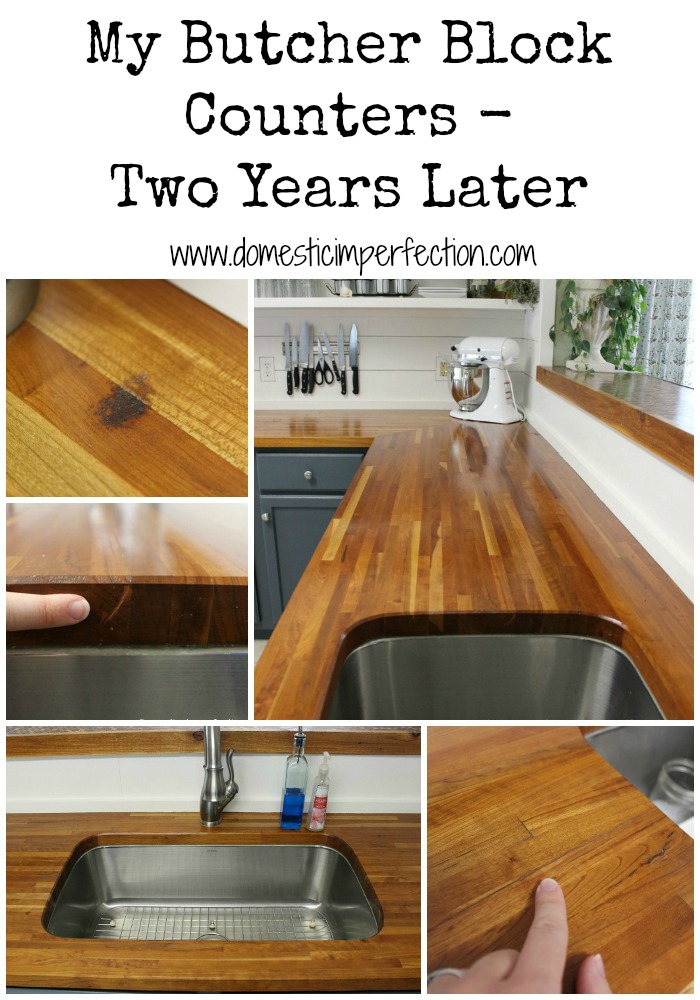
Water Resistance: One common misconception about butcher block countertops is that they are not water-resistant. While wood is inherently susceptible to moisture, properly sealed butcher block countertops can withstand water exposure in a kitchen environment. Regular oiling and sealing help to repel water and prevent damage.
Scratch Resistance: Another misconception is that butcher block countertops are easily scratched. While it’s true that wood can develop surface scratches over time, these imperfections can be easily sanded out with fine-grit sandpaper or by refinishing the surface. Additionally, using cutting boards and avoiding dragging heavy objects across the countertop can minimize scratches.
Stain Resistance: Properly sealed butcher block countertops are resistant to stains from food and beverages. However, it’s essential to clean up spills promptly and avoid prolonged exposure to acidic or pigmented substances like red wine or citrus juice, which can cause discoloration.
Heat Resistance: While wood is naturally heat-resistant to some extent, it’s essential to use caution with hot cookware on butcher block countertops. Placing hot pots or pans directly on the wood surface can cause scorching or burn marks. Using trivets or hot pads to protect the wood is recommended.
Bacterial Resistance: Contrary to popular belief, wood has natural antibacterial properties that make it resistant to bacteria growth. Research has shown that wooden cutting boards, including butcher block countertops, can inhibit the growth of bacteria like E. coli and Salmonella, making them a hygienic choice for food preparation.
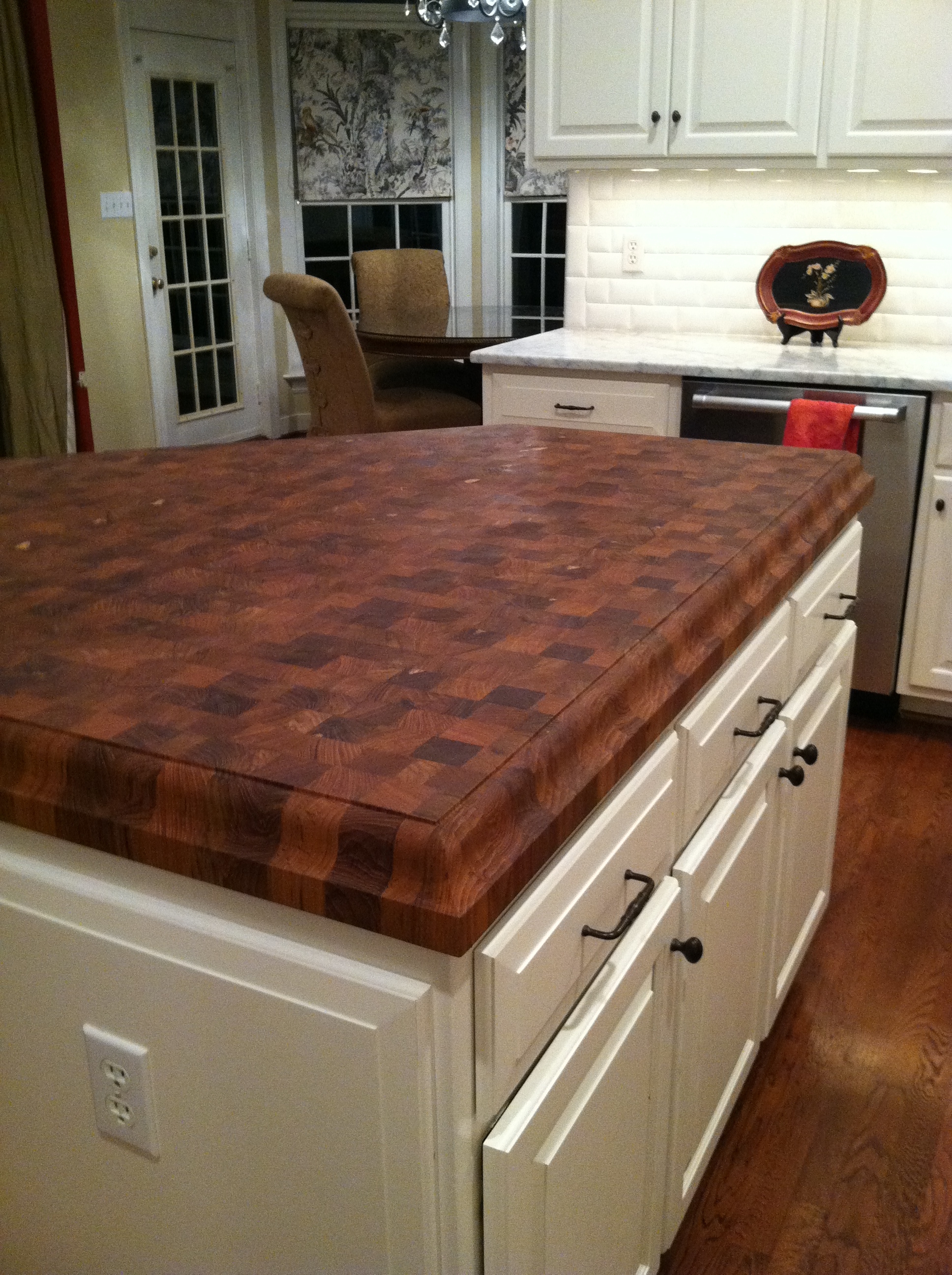
Avoiding Excessive Moisture: One common mistake to avoid with butcher block countertops is allowing excessive moisture to accumulate on the surface. Prolonged exposure to standing water can cause the wood to swell, warp, or develop mold and mildew. Wiping up spills promptly and ensuring proper ventilation in the kitchen can help prevent moisture-related issues.
Neglecting Regular Maintenance: Another mistake is neglecting regular maintenance, such as oiling and sealing, which helps to preserve the beauty and durability of butcher block countertops. Over time, untreated wood can dry out, become brittle, and lose its natural luster, leading to cracks and damage.
Using Harsh Cleaning Products: Avoid using harsh cleaning products or abrasive cleaners on butcher block countertops, as they can strip away the protective sealant and damage the wood surface. Stick to mild soap and water or specialized wood cleaners specifically formulated for use on butcher block countertops to maintain their integrity.
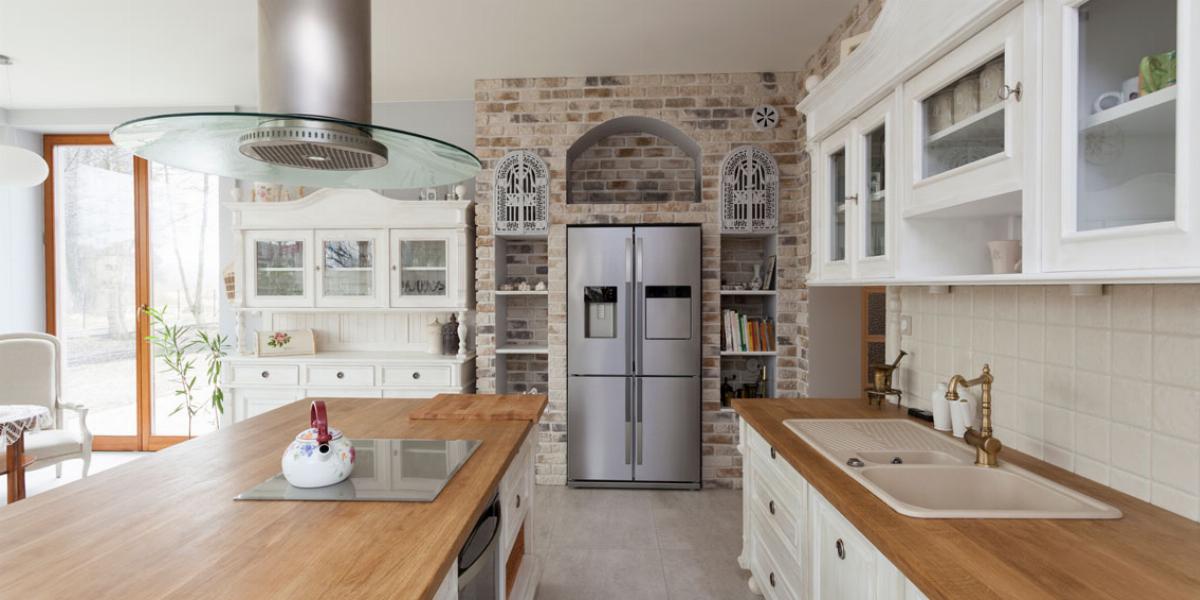
Are butcher block countertops sanitary for food preparation?
Yes, when properly maintained and sealed, butcher block countertops are sanitary for food preparation. Wood has natural antibacterial properties that inhibit the growth of bacteria, making it a safe and hygienic choice for kitchen countertops.
Can butcher block countertops be refinished if damaged?
Yes, butcher block countertops can be refinished if they become damaged or develop scratches over time. Surface imperfections can be sanded out with fine-grit sandpaper, and the countertop can be resealed to restore its appearance and durability.
Do butcher block countertops require a lot of maintenance?
While butcher block countertops require regular maintenance, such as oiling and sealing, the upkeep is relatively straightforward. Periodic oiling helps to nourish the wood, protect it from moisture and stains, and maintain its natural beauty.
Are butcher block countertops prone to warping or cracking?
Properly maintained butcher block countertops are resistant to warping or cracking. However, it’s essential to avoid excessive moisture exposure and to maintain a consistent humidity level in the kitchen to prevent potential damage.
Can I cut directly on butcher block countertops?
While butcher block countertops are durable and resistant to scratches, it’s recommended to use cutting boards to protect the wood surface from damage. Cutting directly on the countertop can lead to surface scratches and premature wear.

Take on Butcher Block Countertops”Woodn’t” You Like to Know
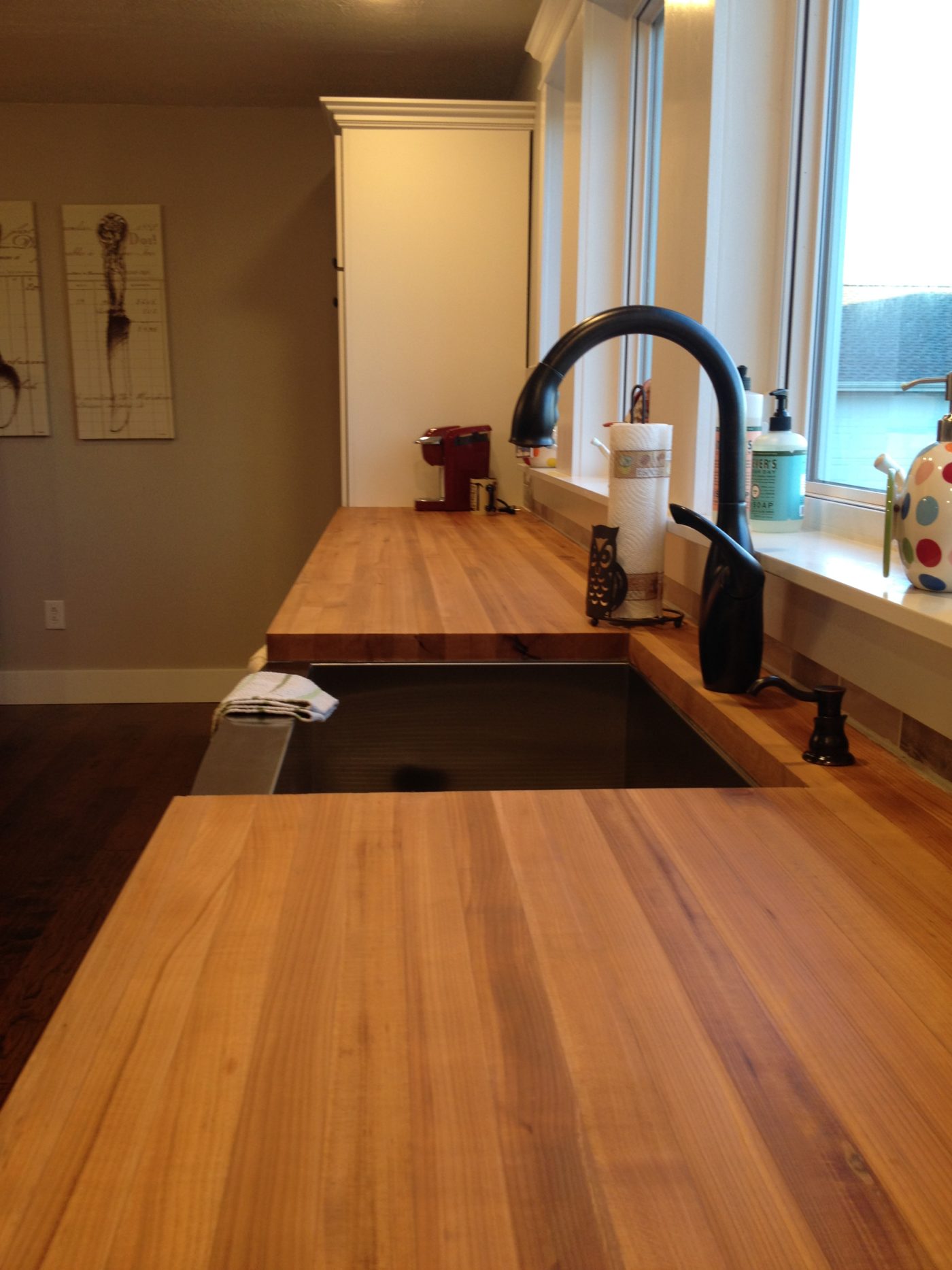
Butcher Block Countertops: Pros u0026 Cons BuildDirectLearning Center

Wood Kitchen Counters Pros u0026 Cons u0026 FAQ {My Experience} – The

Learn About Butcher Block Countertops Pros and Cons

Butcher Block vs Granite Countertops – Pros, Cons, Comparisons and
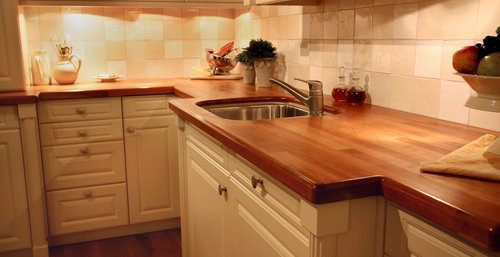
Related articles:
- Pine Butcher Block Countertops
- Butcher Block Countertops Walnut
- Maple Butcher Block Countertops
- Care Of Butcher Block Countertop
- Butcher Block Countertops Maintenance
- Antique Butcher Block Countertops
- Butcher Block Countertop Sealing
- Wood Butcher Block Countertop
- Thick Butcher Block Countertop
- How To Finish A Butcher Block Countertop